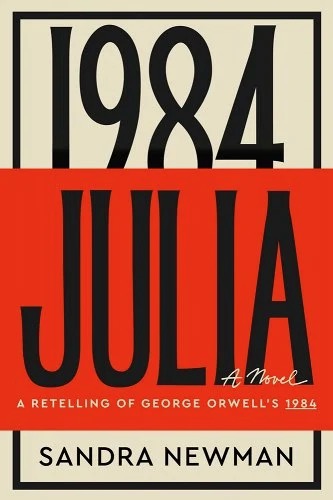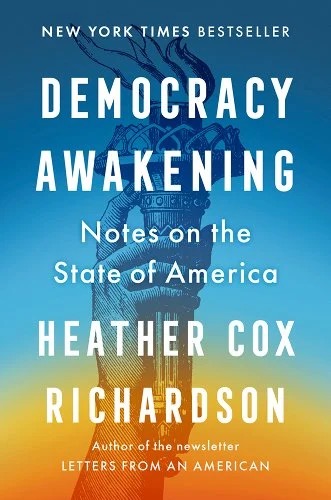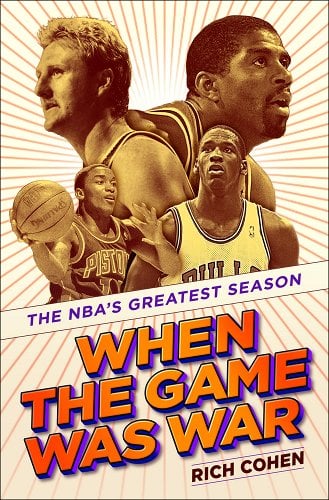Reader’s Notebook, 1/18/24

Julia – Sandra Newman
My first book of the year was a real uplifter!
Officially sanctioned by the estate of George Orwell, it is labeled as a re-telling of his classic 1984. Newman flips the script, and instead of focusing on Orwell’s protagonist Winston Smith, she uses Smith’s lover, Julia, to explore Oceania.
It’s been a decade or so since I last re-read 1984. As I processed Julia I wished I had done another review of the original just to better compare the books. Julia stands up on its own, but I think having a fresher memory of Orwell’s work would have helped me compare and contrast.
Many critics have called Julia a feminist re-telling of Orwell’s story. I didn’t get those vibes. Julia the character certainly wasn’t a pushover, and found ways to subvert Big Brother’s society and express her individualism. But to earn her path to what she hopes will be freedom, she does the bidding of men in power, including a form of sexual slavery. I guess she’s making her own decisions, but being forced to sleep with people to incriminate them doesn’t seem very feminist to me.
Newman does expand the story, giving Julia a chance to escape the inner workings of London and learn that big changes are coming to a power structure that has been in place for fifty years. As she sees the old order begin to crumble she learns that the new boss may not be that different from the old boss.

Democracy Awakening – Heather Cox Richardson
I’ve avoided books like this is recent years. While they speak to my political point of view, they also end up frustrating and angering me. Which isn’t good for my mental health.
Still, this book was recommended by many people/sources that I respect so I gave it a shot.
Guess what? It frustrated and angered me.
It traces all the worst impulses of the modern Republican Party to subvert democracy back to their earliest days. Believe it or not, some of their tactics go back to before the Civil War. They’ve just been updated and adjusted for modern needs. And, of course, switched parties, since it was the Southern Democrats of the 19th century who asserted that society should be hierarchical with power concentrated amongst the elite and that government power was best left to the states. All hallmarks of the current political right.
I keep saying it and I truly believe it: the next 12 months are going to be an awful time for our country. Our democratic institutions are teetering and one side of our political divide is highly invested in pushing them to tipping point rather than finding ways to repair them. I should have known that this book would just piss me off more rather than help me find hope that our situation can be salvaged.


When The Game Was War – Rich Cohen
A very clear change in subject matter and tone here. It is fun look at the 1987–88 NBA season and the four teams/stars that defined the season.
The Lakers, led by Magic Johnson, were about to win their fifth title of the decade, completing a back-to-back campaign coach Pat Riley had guaranteed. The Boston Celtics, featuring Larry Bird, were beginning their slow slide to mediocrity. The Detroit Pistons and Isiah Thomas were on the ascent, pushing the Lakers to the brink (they probably should have won the title that year if not for a key call and a horribly-timed injury to Thomas) before winning their own back-to-back titles. Finally, Michael Jordan was gaining competent teammates like Scottie Pippen and Horace Grant, setting up the Bulls to become the team of the 90s.
Cohen uses a single game for each franchise in the regular season to explore how they reached their ’87–88 state. Then he dives deep into the playoffs and Finals. The book closes with the obligatory update on where each franchise and player went after 1988.
I found the book a bit light, both in content and tone. He argues that this is the greatest season in NBA history both because of the status of those four franchises, but also because of the massive collection of Hall of Fame talent present across the league. These discussions are hard to decide definitively, and nothing about his work undermines his assertion.
As a Chicago native, Cohen does a lot to rehabilitate the image of fellow Chicagoan Thomas. He argues effectively that Zeke’s prickly relationships with Jordan and Johnson, many failures in coaching/management, and a general dislike of the Bad Boys era Pistons have led people to ignore what a singular player he was. I’m on board with this. When you look at his numbers, his biggest performances, how he molded his game to fit his teammates’ strengths and weaknesses, and remember he wasn’t close to six feet tall, it is a little ridiculous that so many of us who saw him play have pushed him out of the conversation for greatest player of his time. He wasn’t as good as either of the MJs. But he wasn’t too far behind. I still hate the dude, but I’ll give him his roses.
One big quibble I have is that Cohen ignored the All-Star Weekend in Chicago, which was a major part of Jordan becoming THE star in the league.
Not the most in-depth NBA book I’ve read. It was still a good way to spend a couple days revisiting some sports memories.